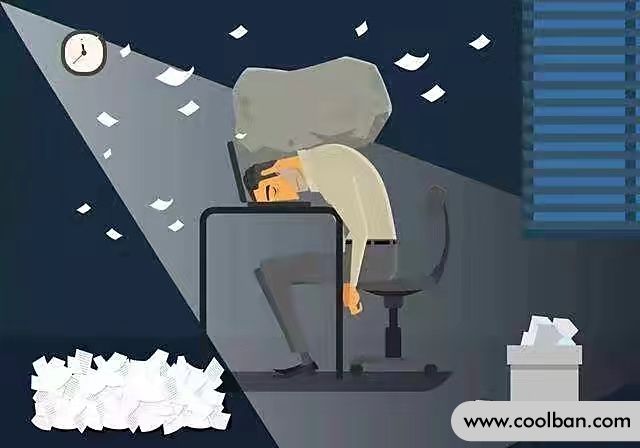3 Reasons for Work Stress
Work pressure is a prominent problem in today's society. In the face of fierce competition and heavy work pressure in the society, most of the employees of enterprises have more or less psychological tension, pain and depression, garbage mood, loss of confidence and other bad psychological states. , The resulting problems such as lack of concentration, decreased work efficiency, and low morale gradually emerge, and over time, lead to mental health problems. So what are the reasons for these pressures?

Reason 1: The external environment of the enterprise
External causes of employee stress are mainly economic and technological uncertainty. Recession leads to a reduction in the quantity and price of products in demand, and companies often weather the crisis by laying off employees, reducing wages and increasing working hours. This will cause greater psychological pressure on employees at this time. The uncertainty of technology refers to technological breakthroughs, and the knowledge and technology of employees are outdated and insufficient in a short period of time. Automation, the improvement of computer level and the innovation of technology will seriously threaten employees, making them emotionally stressed and psychologically stressed.

Reason 2: Internal reasons of the enterprise
Overwork is an important cause of work stress within an enterprise. If employees do not have enough ability and time to complete their work, coupled with poor working conditions, they will have more work pressure. Too much work load can make employees feel mentally exhausted and stressed. Employees always want to achieve self-worth through hard work, and the chores at work can also cause them stress. Secondly, role conflict and ambiguity will bring some difficult to reconcile individuals and difficult to achieve expected work, which is also an important cause of stress. For example, a department manager fires an employee according to the boss's instructions, but the manager may not be willing. In fact, this violates the manager's values, resulting in role conflict; operators often receive confusing and contradictory orders at work, which leads to the phenomenon of role ambiguity; role expectations are not clear, and their job responsibilities are unclear. , the power is not clear, when they do not know what they should do, they will have a vague sense of role, which will produce anxiety and confusion and stress. Then there are psychological distances such as alienation, closeness, hostility, and friendliness in corporate interpersonal relationships. Good interpersonal relationships with subordinates and colleagues can promote the achievement of organizational goals and personal goals. If they don't get along properly, it can cause a lot of stress or hostile relationships with employees. The last is leadership style. Some company leaders over-control employees and have a serious autocratic style, often dismissing employees who fail to meet their required standards. This management style can easily make employees anxious, fearful and nervous, causing them to hallucinate stress in the short term.

Reason three: personal reasons
There are also personal reasons for stress in the workplace. For example: the pressure requirements of the family, the goal to find a job that suits you and be successful in your career; realize your own value and excel in the target group, etc. It's all a kind of pressure that is inadvertently exerted on oneself. There are also opportunities for transfer, promotion and development related to their future career development, and these opportunities are important but uncertain to them, and there may be the threat of unemployment, so this is also one of the important reasons for employees' work pressure . In addition, personality differences are also one of the sources of work stress. Although people's personality characteristics are not the direct source of stress, it affects the individual's response to stress.
